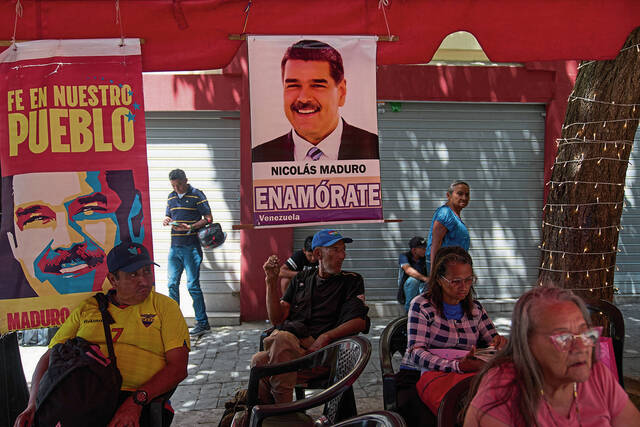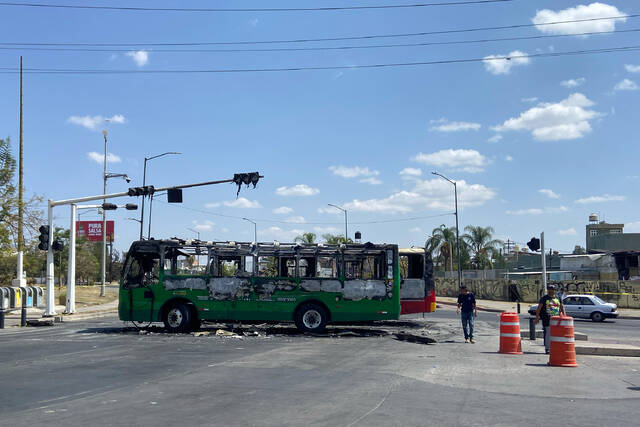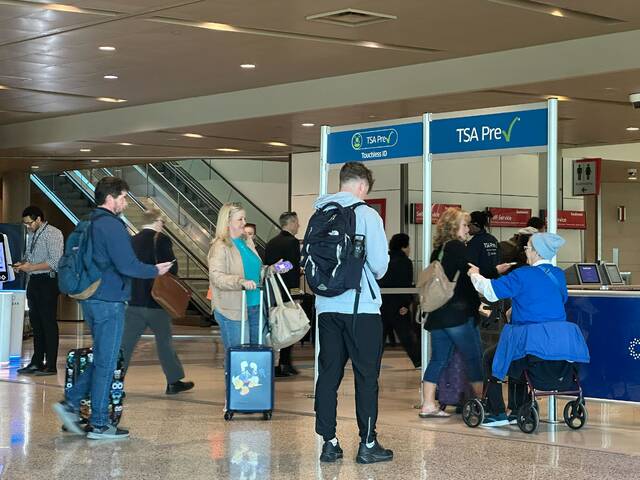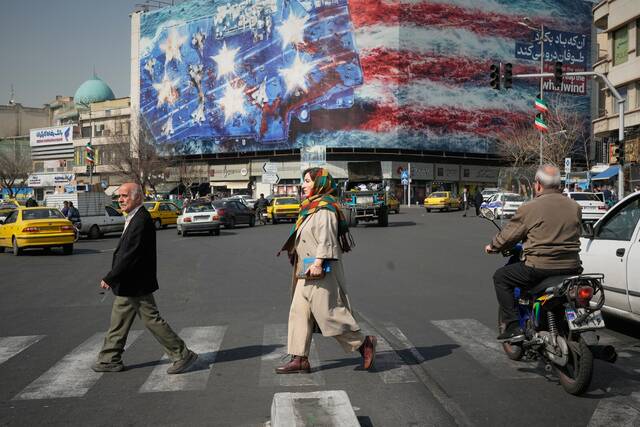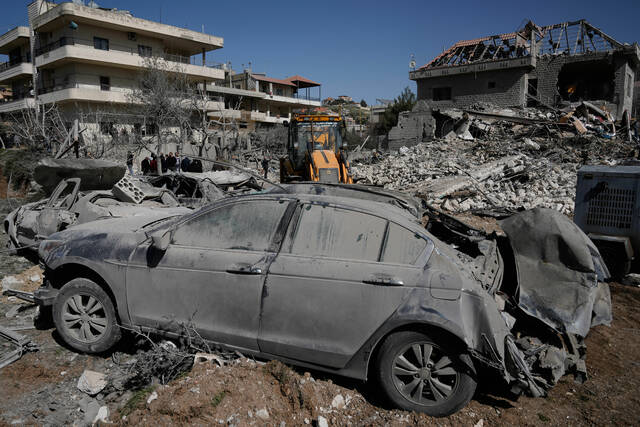WASHINGTON — The United States is sending the two survivors of a Thursday strike in the Caribbean to their home countries of Colombia and Ecuador to be detained and prosecuted, President Donald Trump said Saturday.
The move means the U.S. military will not have to grapple with thorny legal issues surrounding military detention for suspected drug traffickers, whose alleged crimes do not fall neatly under the laws of war, legal experts say.
“The two surviving terrorists are being returned to their Countries of origin, Ecuador and Colombia, for detention and prosecution,” Trump said on Truth Social.
The U.S. military staged a helicopter rescue for the survivors Thursday after the strike on their semi-submersible vessel, suspected of trafficking illegal narcotics. The strike killed the other two crew members onboard.
The military flew the survivors to a Navy warship in the Caribbean after the rescue.
In his social media post, Trump said, “U.S. Intelligence confirmed this vessel was loaded up with mostly Fentanyl, and other illegal narcotics.”
After Trump’s announcement, the Pentagon posted on X a brief black-and-white video of the strike. In the clip, a vessel can be seen moving through the waves, its front portion submerged inches below the water’s surface. Then, several explosions are seen, with at least one over the back of the vessel.
Speaking Friday, Trump told reporters the strike was against “a drug-carrying submarine built specifically for the transportation of massive amounts of drugs.”
Colombian President Gustavo Petro confirmed Saturday on X that the Colombian man who was detained aboard what he called a “narco submarine” was home.
“We are glad he is alive, and he will be prosecuted according to the law,” Petro wrote in a brief post.
The press office for Ecuador’s government said Saturday it was not aware of the plans for repatriation.
The Trump administration has said the previous strikes killed 27 people, raising alarms among some legal experts and Democratic lawmakers, who question whether they adhere to the laws of war.
The strikes come against the backdrop of a U.S. military buildup in the Caribbean that includes guided missile destroyers, F-35 fighter jets, a nuclear submarine and around 6,500 troops as Trump escalates a standoff with the Venezuelan government.
On Wednesday, Trump disclosed he had authorized the Central Intelligence Agency to conduct covert operations inside Venezuela, adding to speculation in Caracas that the United States is attempting to topple Venezuelan President Nicolas Maduro.
Maduro has denied any connection to drug smuggling and denounced the U.S. boat strikes as a pretext for regime change, portraying them as violations of sovereignty and international law.
On Friday, Trump seemed to confirm reports that Maduro has offered a stake in Venezuela’s oil and other mineral wealth in recent months to try to stave off mounting pressure from the United States. Venezuelan government officials have also floated a plan in which Maduro would eventually leave office, according to a former Trump administration official. That plan was also rejected by the White House.
In a letter last week to the United Nations’ 15-member Security Council, Venezuela’s U.N. Ambassador Samuel Moncada asked for a U.N. determination that the U.S. strikes off its coast are illegal and to issue a statement backing Venezuela’s sovereignty.
The strikes in the Caribbean have caused unease among members of Congress from both parties and complaints about receiving insufficient information on how the attacks are being conducted. But most Republican senators backed the administration this month on a measure that would have required Trump’s team to get approval from Congress before more strikes.
Meanwhile, another resolution to be considered would prevent Trump from outright attacking Venezuela without congressional authorization.Trump designated some drug cartels as “foreign terrorist organizations” in February, a move administration officials argue gives them legal justification for the strikes.
The president has suggested he might go further and order strikes on land to combat the flow of drugs from Venezuelan cartels.
“We are certainly looking at land now because we’ve got the sea very well under control,” Trump told reporters Wednesday.
Reuters and the Associated Press contributed to this report.


